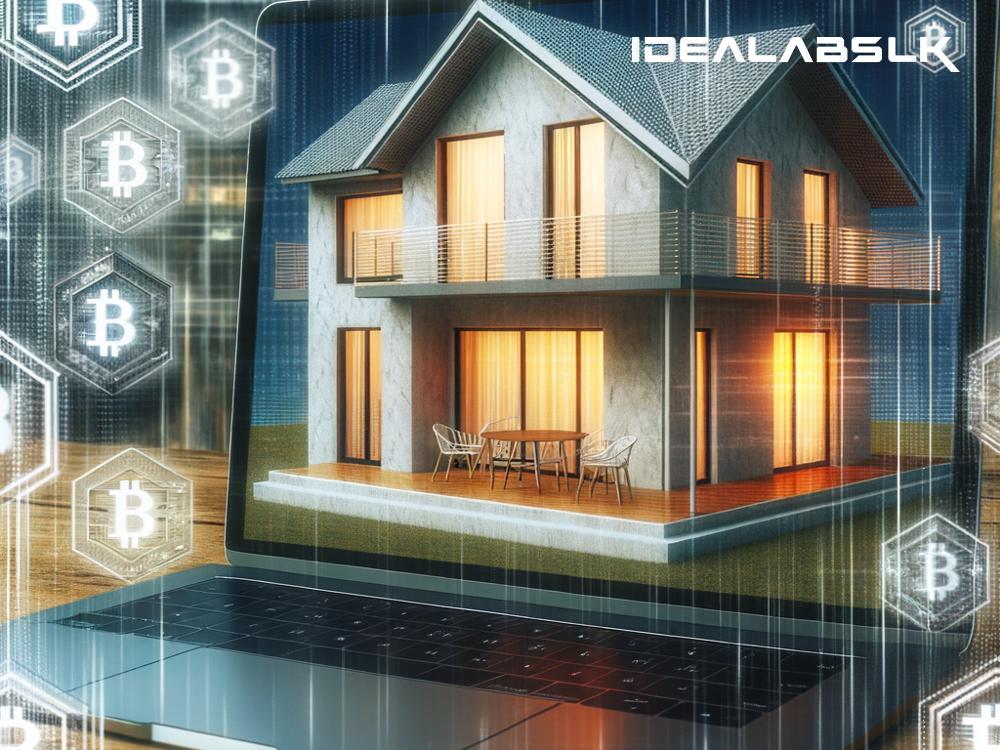Title: A Simplified Guide: How Blockchain is Revolutionizing Housing Market Financial Integrity
The advent of blockchain technology is reshaping numerous industries, with the housing market being no exception. This digital ledger technology, best known for underpinning cryptocurrencies like Bitcoin, is now paving the way for a more transparent, secure, and efficient housing market. In this article, we're diving into the world of blockchain and revealing how it enhances financial integrity in the housing market in a language that's easy to grasp.
What is Blockchain?
Imagine a digital notebook that contains copies of the same pages spread across thousands of computers worldwide. Each time a new transaction or note is added, it's replicated on all copies. This notebook is incredibly hard to tamper with because you'd have to change every single copy at the same time, which is virtually impossible. This is, in essence, what blockchain is – a decentralized, digital ledger that records transactions across many computers so that the record cannot be altered retroactively.
The Current State of the Housing Market
Traditionally, the housing market has been anything but straightforward. From the moment you decide to buy or sell a property to the final handshake, the process is muddied with paperwork, intermediaries like brokers and bankers, and, regrettably, opportunities for fraud. The lack of transparency and the reliance on multiple middle-men can cause delays, errors, and sometimes, unfair practices.
Enter blockchain, with the promise to revolutionize this process from a cobweb of complication into a straight line of simplicity and integrity.
Blockchain's Impact on Financial Integrity
-
Transparency and Trust: With blockchain, every transaction is recorded in a way that's both secure and transparent. This means buyers, sellers, and all parties involved can view the transaction history of a property, creating a level of trust that has been unprecedented until now.
-
Eliminating Fraud: The immutability of blockchain – its resistance to being altered – notably reduces the risk of fraud. Forged documents and false ownership claims become a thing of the past because the transaction history of a property is clear and verifiable.
-
Streamlining Transactions: Blockchain can cut down the time-consuming, error-prone process of property transactions. By reducing the need for multiple intermediaries, transactions can become smoother and faster, potentially saving both parties time and money.
-
Smart Contracts: These are self-executing contracts with the terms of the agreement directly written into code. In the housing market, this could mean automating payments and the transfer of property titles. These contracts not only reduce the risk of manipulation but also expedite the entire process, ensuring integrity at each step.
-
Tokenization: This is the process of turning real-world assets, like a house, into a digital token on the blockchain. This can make buying and selling properties as easy as trading stocks, opening up the market to more participants and increasing liquidity without compromising on security or transparency.
Real-World Examples and the Path Forward
Several pioneering projects already showcase the potential of blockchain in the housing market. In countries like Sweden, the government is experimenting with blockchain to manage land registries more securely and efficiently. Elsewhere, startups are leveraging blockchain for everything from property financing to enabling peer-to-peer property sales without intermediaries.
However, it's not all smooth sailing. The adoption of blockchain in the housing market is still in its infancy, with challenges such as regulatory hurdles, the need for widespread digital literacy, and the technological infrastructure to support massive scale.
Yet, the potential benefits – increased financial integrity, reduced fraud, improved efficiency, and greater trust – paint a promising future of a blockchain-enabled housing market.
Final Thoughts
Blockchain's journey in revolutionizing the housing market financial integrity is just beginning. It's a beacon of hope for a market fraught with opacity and inefficiencies. By fostering a more transparent, secure, and efficient process, blockchain not only promises to transform the housing market but also to instill it with a level of integrity previously unseen.
As we continue to watch this space, one thing is clear: the fusion of technology and real estate holds the key to a more trustworthy and accessible market. The path forward might be dotted with challenges, but the destination—a transformed housing market illuminated by the principles of fairness and integrity—makes the journey well worth it.

